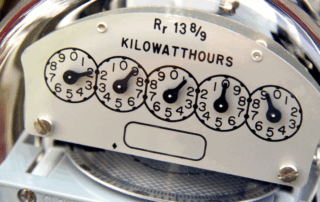Impact Of Electric Vehicles (EVs) On The Grid
Electric vehicles (EVs) are quickly becoming a cornerstone of consumer transportation in the U.S., with their adoption profoundly reshaping how our electrical grid operates. This article explores how the rise in EV charging demand impacts the electricity market and what consumers can do to mitigate rising costs.
How Weather Affects Energy Markets: Risks, Volatility, and Strategic Planning
In today’s interconnected energy markets, weather is often the main driver of short-term price swings and long-term infrastructure challenges. For commercial energy customers and brokers, understanding this connection is essential to navigating energy procurement and mitigating risk.
Global Energy Supply: Trends Shaping The Future Of Energy Markets
Global energy markets in 2025 are being reshaped by a powerful mix of geopolitical risks, surging demand from AI and electrification, and record renewable growth. For businesses and energy brokers, understanding these supply-side trends is essential to anticipate volatility, control costs, and align procurement strategies with a rapidly evolving market.
Price Elasticity Of Energy Demand
In deregulated energy markets, understanding how electricity usage changes in response to price shifts can give brokers and businesses a major advantage. By leveraging price elasticity insights, energy buyers can align procurement strategies, manage risk, and uncover new opportunities to reduce costs in volatile market conditions.
Is Demand Response the Answer To Rising PJM Capacity Costs? Here’s What You Need To Know
With PJM capacity prices spiking to record levels, many large energy users are searching for ways to reduce their exposure and protect their budgets. Demand response offers a unique opportunity to not only earn payments for curtailing load but also lower future capacity charges when paired with effective peak management strategies.
5 Ways to Reduce Capacity Tags and Combat PJM Rate Increases
With PJM’s 2025/2026 capacity rates surging to decade highs, reducing your facility’s capacity tags has never been more critical for controlling electricity costs. By understanding how tags are calculated and taking strategic action during peak summer hours, businesses can significantly lower future capacity charges and protect their bottom line.





